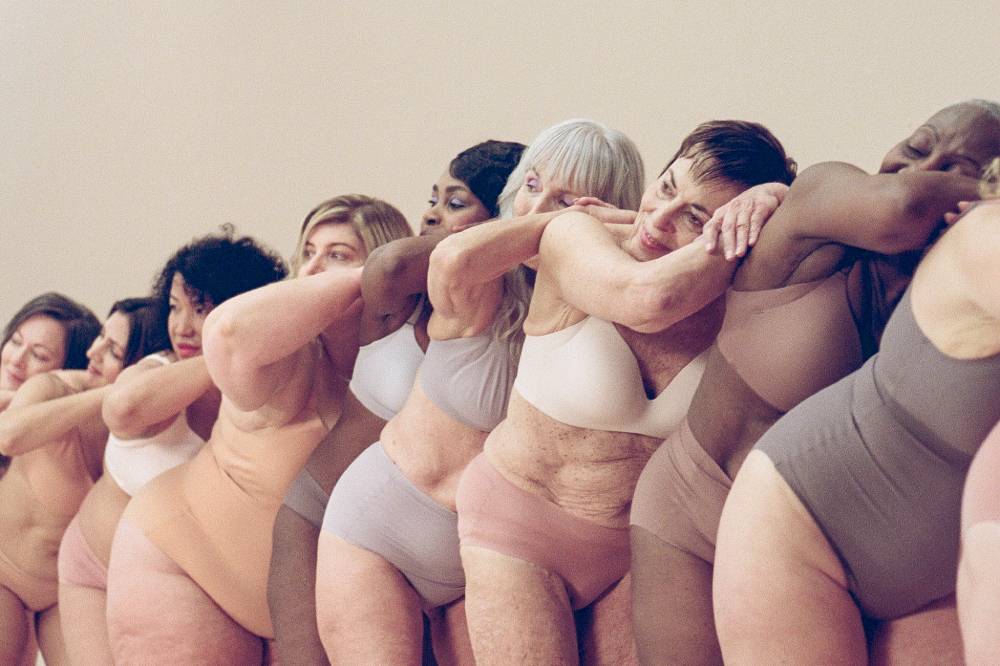Mood Swings and Hormonal Rage: How to Improve Your Mental Health During Perimenopause
Perimenopause can give way to an onslaught of unpleasant symptoms, from flash periods to hot flashes. But its mental health effects often go unnoticed or are misdiagnosed.
“There’s a huge deficit in this area,” says Dr. Judith Joseph. “As a result, many people just walk around thinking there’s something wrong with them, that it’s their fault when it’s not.”
As a long-time mental health practitioner with a background in biology and chemistry—she’s been referred to as “social media’s favorite psychiatrist”—Dr. Judith’s uniquely versed in the role hormones play in our mood, cognition, sense of self, and ability to function.
Much of her work, and that of her research lab, is centered on filling important gaps in women’s health. She emphasizes the intertwinement of our minds and bodies, validating the very real mental health challenges that often come with physical change.
Perimenopause, of course, is no exception—but that doesn’t mean you're fated for a lifetime of mood swings and hormonal rage. Solutions and coping mechanisms are ample, but first it’s essential we do the work of identifying, naming, and talking about our experiences.
Ahead, you’ll find helpful insights into distinguishing symptoms of depression from symptoms of perimenopause, how they might affect you in the workplace (and beyond), and what you can do about it.
Thought Is Powerful

“What I noticed with my patients, [is that] hormonal change really can impact the way they behave, feel, interact with others, and think—and they don’t even realize it,” says Dr. Judith.
To better explain the perimenopause’s mental health ties, she came up with the acronym TIES, the first letter of which represents “thinking.”
“This is really the cognitive changes we see in about two-thirds of people going through the perimenopausal transition,” she tells me. This can affect everything from difficulty finding the right word to losing things, changes in organization, planning, and time management.
These cognitive and executive functioning-related symptoms, she emphasizes, aren’t permanent—the exception being those with a history or high risk of Alzheimer’s or dementia. Permanent or not, however, she appreciates just how alarming it can be.
“It can feel daunting for the person who’s experiencing it because it’s scary when you feel or believe that you’re losing function,” says Dr. Judith. “What I explain to my clients is that it will pass. It’s not permanent, and there are tools we can use to support you.”
Tools around time management and organization can provide support for those experiencing this temporary change in cognition. What’s unfortunate is that many women are affected by these symptoms at the peak of their careers.
“Unfortunately, I think that leads a lot of people to leave the workplace during mid-life because they don’t understand what’s happening,” says Dr. Judith. “They’re leaving at a time when they’re probably at their best because they’ve refined their skills, but they feel that there’s something wrong with them.”
Identity Shock

“The I in TIES is identity,” according to Dr. Judith. “Because we live in a society where our identities are closely tied to our functioning, [during perimenopause] we sometimes feel as if we’re losing ourselves.”
This sense of identity loss can stem from those aforementioned cognitive changes or the strangeness of feeling different in our bodies. Dr. Judith, however, suggests reframing this as an identity change—one that can be embraced and supported.
Cognitive Behavioral Therapy (CBT), for instance, can be a powerful tool in breaking the negative cycles of thought that often shape our self-perception. “When we have negative thoughts, especially negative thoughts around aging, our symptoms are likely to be worse,” she says.
Mood is also closely tied with our sense of self. Feelings of irritability can manifest in what Dr. Judith refers to as rejection sensitivity.
This can make managing conflict at work, for instance, particularly tense as perimenopausal folks may have to navigate feeling more sensitive than usual. Being reactionary can lead to behaving out-of-character and, as a result, not feeling like yourself.
This is where coping mechanisms like CBT can come into play, challenging emotionally impulsive or negative responses for better communication outcomes and a renewed sense of self.
Emotional Confusion

If your emotions (the "E" in TIES) are feeling more intense and difficult to regulate than usual, you're far from alone. This common perimenopause mental health affect can also be sharpened by life's pressures: a demanding job, caring for aging parents, raising teenagers.
“We know that many of those going through this change in mid-life will experience depression and anxiety,” says Dr. Judith. “I like to educate my patients about the differences between a major depressive disorder and perimenopausal mood changes.”
To distinguish between depression and perimenopause symptoms, Dr. Judith relies on the three P’s: physical changes, period changes, and path (meaning your medical and family histories).
If you're experiencing hot flashes, irregular periods, dry skin, and heart palpitations in tandem with depressive symptoms, that’s likely not a major depressive disorder, according to Dr. Judith. Those with medical and family histories of depression or trauma, however, may be more vulnerable.
She also points out that it’s human to fear the unknown—which is why naming our feelings is so powerful. “If you can name how you feel, then you’re less confused,” she says.
It’s important to take each of these elements into consideration, she stipulates. “[It’s important] to differentiate between the two because treatments for major depressive disorder are very different [from] treatments for menopausal mood changes.”
Sleep Troubles

The “S” in TIES, as you may have guessed, is sleep. “We know, in general, as we age, sleep architecture changes,” says Dr. Judith. “Hormonal changes can impact sleep differently compared to other types of insomnia.”
The transition may also make some more prone to sleep apnea, which is why she recommends her perimenopausal patients do a sleep study to identify any sleep-related issues.
“Sleep is so important because sleep is the time in our daily cycle where we refresh, our body gets rid of toxins, it’s restorative, [and] helpful for how we feel physically and mentally,” she says.
Sleep affects cognition, mood, and, as a result, how you feel about yourself. And while there may not be a quick-fix to getting better sleep, solutions include CBT, sleep clinics, and maintaining good sleep hygiene.
When sleep quality suffers, it’s likely to exacerbate underlying or existing perimenopause symptoms. It can, again, also be a detriment to women in the workplace.
“We need to support women who are going through this so we can remain diverse in our workplaces,” says Dr. Judith. “This is not just a problem for women, this is a problem for all of us.”
—
We hope you found this post informative—but remember: we’re not doctors and this post is not medical advice! While all posts are fact-checked and well researched, we always recommend you chat with your doctor about any questions or concerns you might have regarding a medical condition.
We’re here to support and educate, but never with the aim of disregarding professional medical advice you’ve been given. Phew, now that that’s out of the way, you can go on living unapologetically free.










